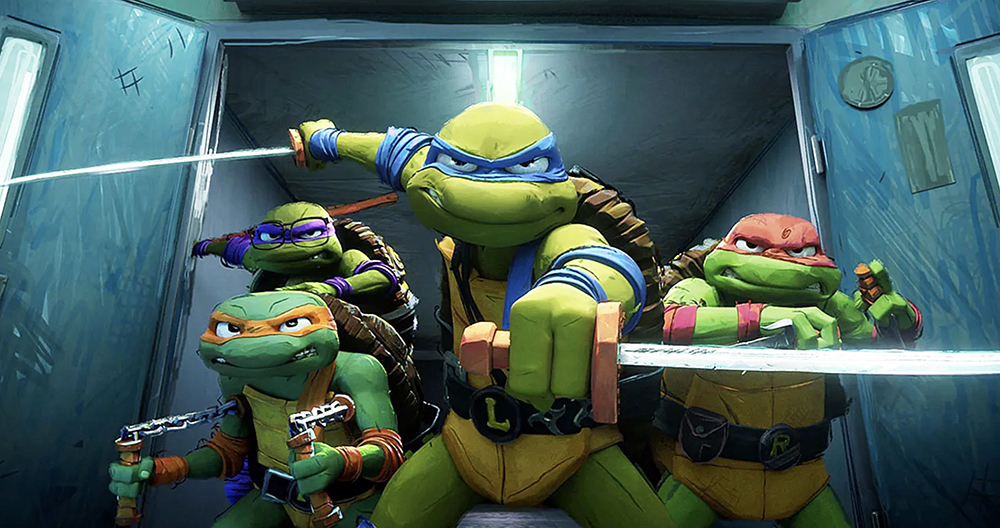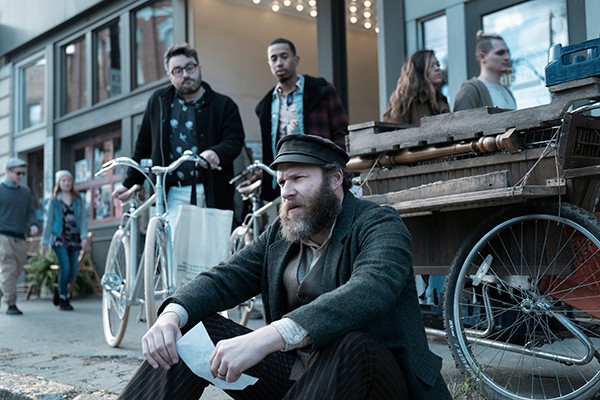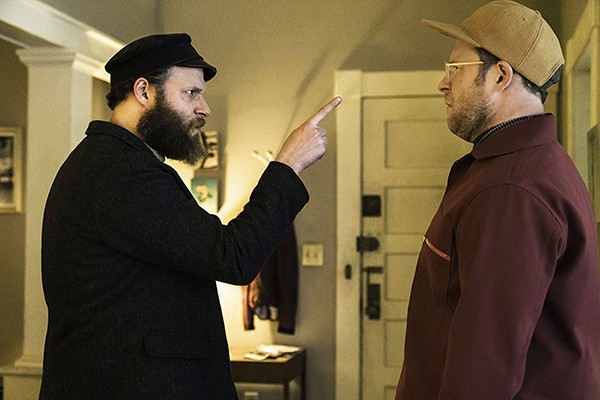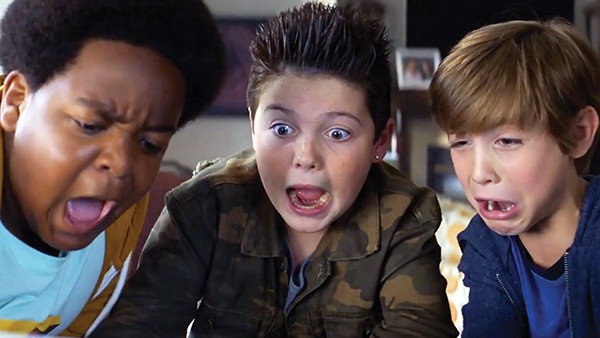I had one eyebrow raised as I walked into Teenage Mutant Ninja Turtles: Mutant Mayhem. I’d been burned by the turtles before. I watched the classic ’80s cartoon as a kid, but their previous big-screen offerings have featured bright green costumes that seemed more the stuff of nightmares than a stylish interpretation of their indie comics origin.
Mutant Mayhem, luckily, has no such missteps. Director Jeff Rowe and producers Seth Rogen, Evan Goldberg, and James Weaver embrace the good kind of weirdness that comes with the turtle territory. The success of Into the Spider-Verse has opened the door to fresh approaches in animation, and Mutant Mayhem takes full advantage. The visible brush strokes in an early shot of the moon over New York City set the mood for a film filled with jagged, scratchy lines. The artistic mayhem captures both the glamor and grime of the city’s sidewalks and sewers, while adding an air of controlled chaos during the rapid movements of combat scenes. Mutant Mayhem’s doodle aesthetics harken back to scribbled drawings in the corners of middle-school notebooks.
As baby turtles, our quartet of heroes are exposed to radioactive ooze which transforms them into humanoid form. Their adoptive father Splinter (Jackie Chan), a rat who was also exposed to the ooze, discovers them in the sewers and trains them in martial arts. Leonardo (Nicolas Cantu), Michelangelo (Shamon Brown Jr.), Donatello (Micah Abbey), and Raphael (Brady Noon) sneak their way through the streets of New York City to retrieve vital supplies like toilet paper and Cool Ranch Doritos. They watch humans from afar, idolizing Ferris Bueller during a movie night in the park and dreaming of one day joining the paradise that is high school. Like normal teenagers, they do things like bicker and film themselves as real life Fruit Ninjas slicing watermelons with a sword.
But the turtles are tired of living in the sewer. Their new human friend April O’Neil (Ayo Edebiri) needs to do something great to distract her classmates from an embarrassing high school moment. They hatch a plan to record the turtles performing heroic deeds and package it as the news story of the year. Luckily for their plan, a villain known as Superfly (Ice Cube) has been stealing fancy scientific equipment from armored cars around the city and needs stopping.
Sure, there are superhero elements, but Mutant Mayhem is a high school soap opera about a group of outcasts who just want to fit in. The turtles aren’t ready-made heroes or defenders of New York. Their teen angst eventually spirals into a large-scale city conflict, but it’s this grounded take that makes this the best TMNT film ever. According to Rogen, this is the first time that all the titular characters have been voiced by actual teenagers. It’s easy to tell when the voice actors are freed to riff off script, improvising with one another and bantering like kids at school.
Other longtime TMNT stalwarts pop up, including fellow mutants Rocksteady (John Cena) and Bebop (Rogen). As a fan of the original cartoon, I missed their arch enemy Shredder and members of the Foot clan, but really, they’re not needed here. Teen melodrama, cool visuals, and fancy fisticuffs earn Mutant Mayhem a deserved “Cowabunga!”
Teenage Mutant Ninja Turtles: Mutant Mayhem
Now playing
Multiple locations




